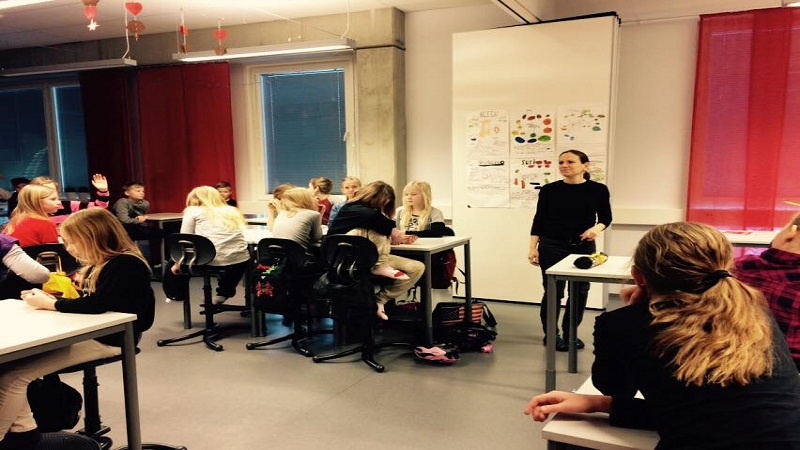The formation of values is one of the premises of Higher Education; the teaching-learning process in the university context includes among its objectives the development of the personality of students.
You have knowledge and skills are not framed as the limit for the university today; there need to be in it values that guide and regulate their behavior in various spheres of life. This is the reason why values education is established as one of the premises of the contemporary university.
The human being is made up of the unity of the biological, psychological, social, cultural and spiritual. A psychology as a science is responsible the study of the subjective nature of values. In this area of knowledge values life becoming a motivational training complex personality, which alongside other psychological processes involved in the regulation of behavior.
The formation of values is not part of a spontaneous process result of psychic development. Its appearance will be determined, among other factors, by the processes of subjectivation and the age period for which each individual is traveling, hence the importance of the process of subjectivation of values in the university student.
Framed in the curricular dimension of the training process, values education aims to make personal social through an integrated methods that are taxed at development of the student set. Mistakenly it believed that the impact of educational influences is the most effective method to achieve this purpose. The values will not form in the student simply because having gone through college, even though its relations system is composed of ethical, aesthetic or moral values. Analyze in this way would deny the active nature of human beings.
You need to think values education as favoring a dynamic convergence between the mechanisms of educational influence and emerging subject, that is, the interpersonal. An imposition would violate the subjectivity of the student, resulting in a deviation in their development and a rejection of any kind of influence.
Values and Social Relations
The values arise through social relationships. They have an objective character because its existence does not depend on personal will. They are the result and condition of activity and human communication. By the time the individual incorporates them into his personality, become possess a subjective, psychological. The incorporation of a certain value to the personality is subject to several factors. First the student not only possess some level of information, understanding and reflection about the value in question, plus the contents thereof must have a personal meaning to stir up feelings and emotions necessarily.
The values have a dual character, are objective and subjective at the same time. The responsibility, for example, cannot exist independently of a responsible subject, so it is subjective. Similarly, its existence is in social conditions and therefore is objective. The subjectivity of values is merely socially valued customizing content. This refers to the relationship between objective and subjective, the transition from the outer to the inner of the psychological qualities of the individual.
Subjectivation securities
The subjectivity of value does not constitute an identical copy of the values in a particular social environment. Once internalized by the subject, it assumes them and expresses them from their personological features, so do not manifest it in the same way they are presented in others; that is, they acquire a custom character. They are not satisfied as a result of psychological development, nor are internalized spontaneously. Rather, they are mediately resulting of the individual’s life history, its conditions and lifestyle and education. Your customization is determined by the society and the active role played by him in the process, thus highlighting their self-determination.
The age period plays a crucial role in the subjectivity of values, and it would be a bias not analyze par Stage psychological development in which the individual is. The college student usually found in young age, at which time the affective-emotional sphere is coated as very important. Ideals, self – worth, the world view and sense of life, moral development and the reasons and professional interests are psychological formations that are included within the affective-motivational and promote relative independence on the subject of external influences.
You may also like to read another article on WeiWeiCS: 5 Steps to Launching a Startup in College
Self-determination
The young must face the task of self-determination in the different spheres of life as one of the requirements for proper development. Thus the failure to implant values arbitrarily reaffirmed. In this sense, young people should feel free to choose, among other reasons, given that self -determination more than an aspiration is framed as a necessity.
Self – determination, together with the development of cognitive sphere of young, favors the emergence of the new formation of this stage: The conception of the world constitutes the complex motivational training of broader scope because allows the young to structure its meaning and life projects. In addition it marks the system of principles, values, concepts, beliefs, myths and ideas about life have a subject. Therefore, behind every sense and philosophy of life, rest, together with other personological content, the values that have been subjectified by the individual.
Linked to the conception of the world is the emergence of theoretical conceptual thinking. The maturation of the thought of the young allows you to reason deeply about their relations with reality, with others and with himself, so his philosophy of life will be marked by reflections on it do. Consequently, the subjectivity of values be consciously and intentionally. Similarly the self reaches a higher level at this stage. It relates to the ability humans have to have a valuation representing themselves and will be influenced by the scale of values of the subject, because from them is to prosecute their own behavior.
In the earlier stages of moral conscience could be manipulated or managed by external agents, but in this period the young is much more autonomous. This allows you to strengthen your conscience and thus moral values. For this reason, teachers should guide the formation of values without usurping the right of self – determination of the student. Reflect on this aspect will make strategies values education more effective, due to the existence of a close link between ideals and moral values.
In youth essentially it completes the process of formation of personality. At this stage consolidate psychological formations of the affective-motivational sphere, allowing the young to maintain a conscious and intentional conduct, consistent with the authentic values of society.
For historical and cultural psychology values are a complex personality motivational training, not spontaneous products of psychic development. This means that their formation depends both on the social conditions in which the subject is unfolding as their intrapsychic qualities.
Joining the personality of college student socially valued content it is produced by the subjectivity of the same and always intervenes in this process the student’s worldview, their self-worth, moral development and their need for self-determination.







